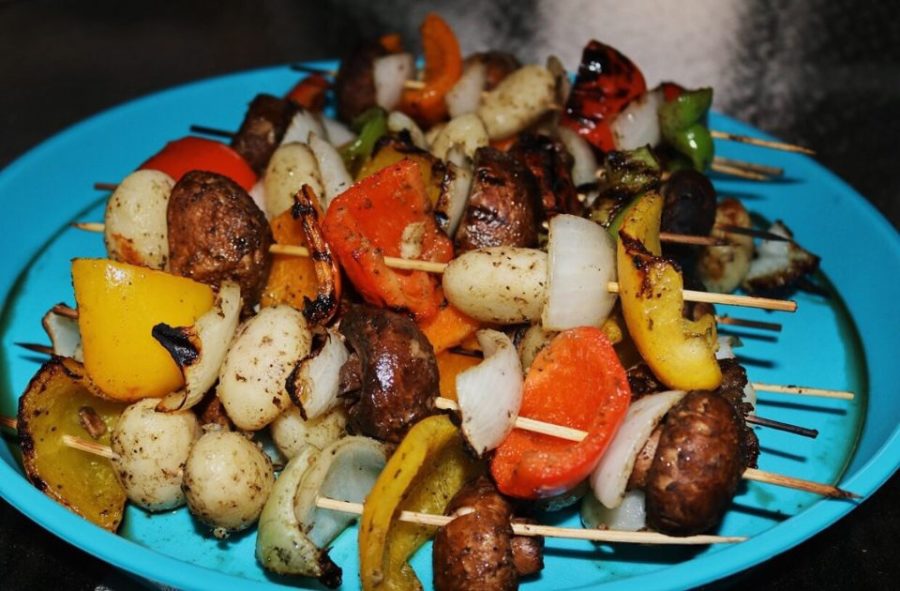Alternate Dietary Options: Vegan, Vegetarian, Pescatarian, Gluten-Free
December 21, 2018
It cannot be denied that over the past few years, the presence of veganism and vegetarianism has increased in popular culture. The availability of products that allow people to follow other diet plans has greatly increased as well, which makes it easier and easier to buy plant-based products or other products that support different diets. Why is it that so many people are now following a plant-based or alternative dietary option?
Mara Levine, ‘21, says she is a vegan because it is “better for the environment and more sustainable” and also believes that “even making small changes in your diet makes a huge positive impact on the planet […] so you don’t have to be 100% vegan; it’s just about doing what you can.”
Five alternative dietary options that have become more popular recently are the vegetarian, vegan, ketogenic, pescatarian, and gluten-free lifestyles. These lifestyles and their important differences are described below.
Vegetarians don’t eat any meat and generally get their protein from plants and other sources. Cutting out meat can lower blood pressure and chances of heart disease, but a drawback of being vegetarian is a lack of nutrients, such as protein, if people don’t have a correct balance.
Vegans don’t eat any animal products, which improves kidney function and protects against certain cancers, but this diet also includes possible iron deficiency.
The ketogenic diet requires high fat and high protein foods. Benefits include suppression of appetite and improvement of cognitive functions, but downsides include an adoption process because of its irregular restrictions on certain food groups.
Pescatarians don’t eat meat, but do eat fish. Although this style of eating can be pricey and contain too much mercury from the fish, it is rich in vitamins and minerals and promotes healthy bones.
Becoming gluten-free has also been another popular alternative dietary option. Many people have to be gluten-free because of certain illnesses, but being gluten-free introduces higher-quality grains and leads to eating fewer processed foods; however, it may cause a lack of fiber.
Most alternative dietary options are heart healthy, but almost all cut out certain nutrients. It is extremely important to continue to receive those nutrients.
Margaret Dow, a health teacher at Minnetonka High School, says that alternative dietary options can become negative if “you’re not approaching it in a healthy way” and advises that if “ you are doing it for weight loss, make sure you are getting enough protein and fat.”
Still, these alternative dietary options can also be extremely beneficial because “focusing on greens, a plant-based diet is a really healthy way to think about eating,” she said.
Even though you have to be especially careful about the food you consume, alternate dietary options can be exceptionally rewarding both personally and globally.






























